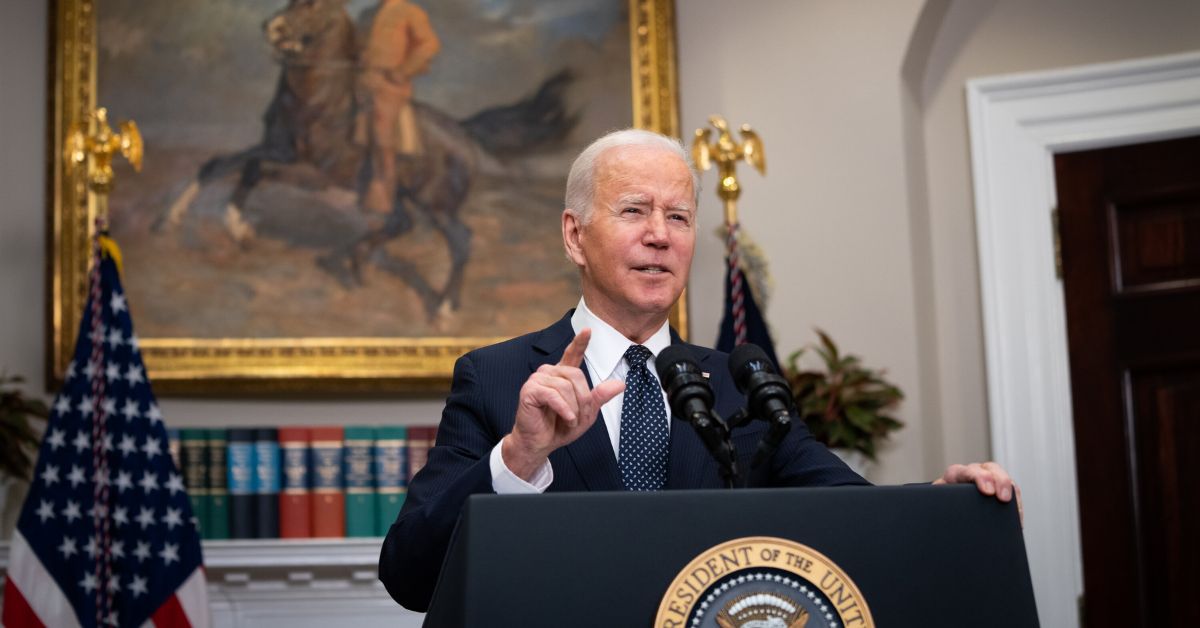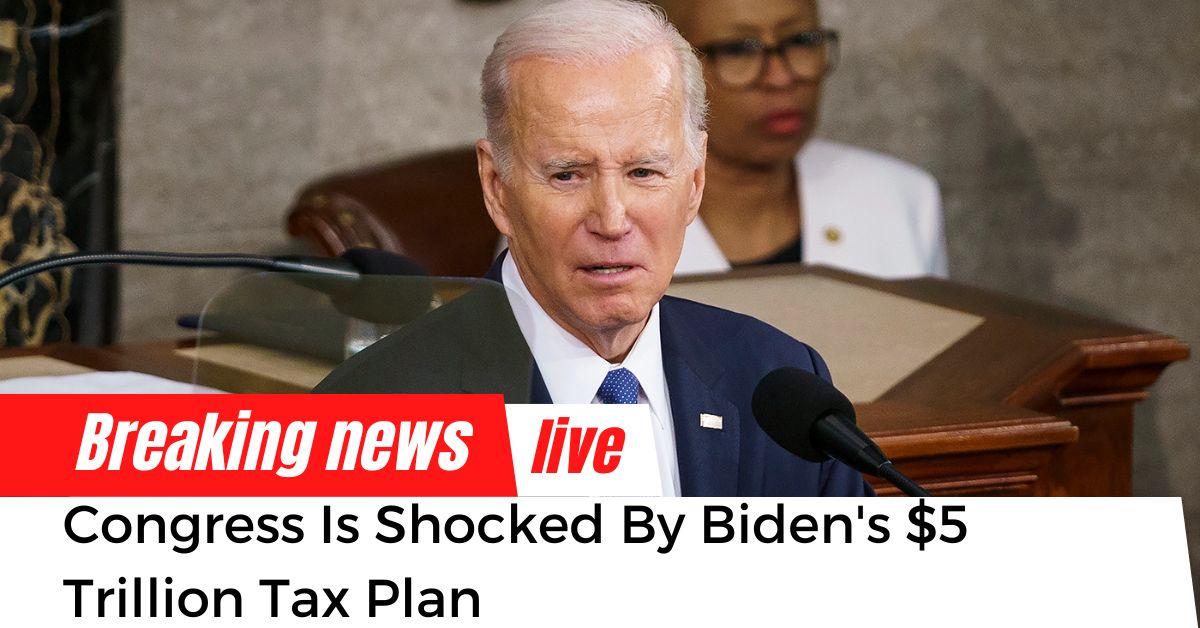In his $6.8 trillion annual budget proposal to Congress, President Biden made a big move by asking for $5 trillion in tax hikes over the next 10 years. This was more than what lawmakers were expecting after the president played down his tax plans in earlier meetings.
It’s a risky move for the president to make, especially since he’s going to have a hard time getting re-elected in 2024.
Next year, Senate Democrats will have to defend 23 seats. Some of these seats are in states that tend to vote Republican, like Ohio, Montana, and West Virginia. Americans are worried about inflation and the direction of the economy.
Republicans say that Biden’s budget plan is a return to liberal tax-and-spend politics. They say that higher taxes on corporations and the wealthy will hurt the economy.
Biden, on the other hand, thinks he can win the debate by promising not to raise taxes on anyone who makes less than $400,000 a year. The ranking member of the Senate Finance Committee, Sen. Mike Crapo (R-Idaho), said that Biden’s ambitious tax plan “dropped jaws.”
“This is exactly the wrong approach to solving our fiscal problems,” he said of the $5 trillion aggregate total of proposed tax hikes. “I think this sets a new record, by far.” The leader of a group that wants lower taxes, Grover Norquist, said, “In terms of dollars, it’s the biggest tax increase in American history.”
An Unexpected Event And A “Negotiating Position”
Based on what Biden said in his State of the Union address on February 7 and what the news said in the days before the White House released its budget plan, many lawmakers thought he would propose tax hikes of between $2 trillion and $2.5 trillion.
The $5 trillion in new tax money is more than what the president asked for last year, when the House and Senate were both controlled by Democrats. In October 2021, when Biden was trying to reach a deal with Sen. Joe Manchin (D-W.Va.) on the Build Back Better plan, he suggested tax increases of only $2 trillion.
Some Democratic policy experts were surprised by the headline number, but they all agree that the federal government needs to get more money. “I didn’t expect to see a number that big, but I’m not alarmed by it. I think it’s a negotiating position,” said Jim Kessler, the executive vice president for policy at Third Way, a centrist Democratic think tank.
During his State of the Union address, Biden told lawmakers that his budget plan would cut the deficit by $2 trillion and that he would “pay for the ideas I’ve talked about tonight by making the rich and big corporations start to pay their fair share.” The president then surprised lawmakers with a budget plan to cut the deficit by $3 trillion over the next 10 years, almost all of which would be done by raising taxes.
Biden wants the 0.01 percent of families with the most money in the country to pay a 25 percent tax. He wants to raise the tax rate for corporations from 21% to 28% and the tax rate for the highest earners from 37% to 39.6%. He wants to make the 1 percent tax on buying back stock four times as much. He wants people who make more than $1 million a year to pay 39.6% tax on capital gains.
Kessler pointed out that Biden’s budget doesn’t cut spending much or change Social Security, even though Biden promised to fix the program’s problems during the 2020 election. Kessler defended the president’s plan to instead focus on taxing wealthy people and businesses. He said, “The amount of unrealized wealth that people at the top have dwarfs anything we’ve ever seen before.”
He said, “These are opening bids” before Biden and Speaker Kevin McCarthy (R-Calif.) started talking about how to raise the debt limit. Senate Republicans are trying to disprove Biden’s claim that his tax plan will only hurt rich people and businesses.
“I think it’s bad for the economy. Last time I looked, most business tax increases are passed on to consumers, and Sen. Lindsey Graham said, “I think we need to control spending more than adding $5 trillion in new taxes” (R-S.C.).
Norquist, a conservative anti-tax activist, said that if the corporate tax rate was raised, it would have an effect on the whole economy. “The corporate income tax, 70 percent of that is paid by workers and lower wages,” he said.
He said that small businesses that file under Subchapter S of the tax code would be hurt by a rise in the top marginal tax rate and the capital gains tax rate.

He said-
“When you raise the top individual rate, you’re raising taxes on millions of smaller businesses in the United States”
“Their employees end up paying that because that’s money they don’t have in the business anymore.”
How does Biden compare to predecessors?
Norquist said that both Obama and Clinton cut taxes during their terms in office. He pointed out that Clinton lowered the tax rate on capital gains, and Obama made many of Bush’s tax cuts permanent.
“Both of them ran campaigns that were more moderate. He said this about Biden, comparing him to Bernie Sanders, a liberal independent senator from Vermont. Biden’s budget is a big change from what Obama did 12 years ago, when he was also in a standoff with a GOP-controlled House over the debt.
In his first year working with a Republican majority in the House, Obama proposed cutting the deficit by $1.1 trillion in his fiscal 2012 budget. He said that two-thirds of this should come from cutting spending and one-third should come from raising taxes.
Later, in the fall of 2011, Obama stepped up his plan by putting out a plan to cut the deficit by $3.6 trillion over ten years and raise taxes by $1.6 trillion over that time.
Some Democrats Think This Is A Problem
Republican strategists say that they will use Biden’s plans to raise taxes as a weapon against Democrats who are running for re-election next year. Steve Daines of Montana, who is the head of the National Republican Senatorial Committee, said that Biden’s budget is “a contrast” before the election.
Sen. Jon Tester (D-Mont. ), whose re-election will be hard in a state where former President Trump won with 57 percent of the vote, said he’s worried about new taxes that would bring in trillions of dollars.
When asked on Wednesday if he was worried about how Montanans might react to Biden’s plan to raise taxes, Tester said, “Yes, I am. I need to know that will work. I had to see what he was up to.” Manchin, who is running for reelection in another red state, has asked his fellow Democrats to pay more attention to how the federal budget has grown from $3.8 trillion in 2013 to $6.7 trillion today.
“Can we just see if we can go back to normal? Where were we before COVID? What was our trajectory before that?” he asked in a CNN interview Thursday. “How did it get so big so fast? He asked about the federal budget and debt, “How come we need so many things now that we didn’t before?”

Leave a Reply